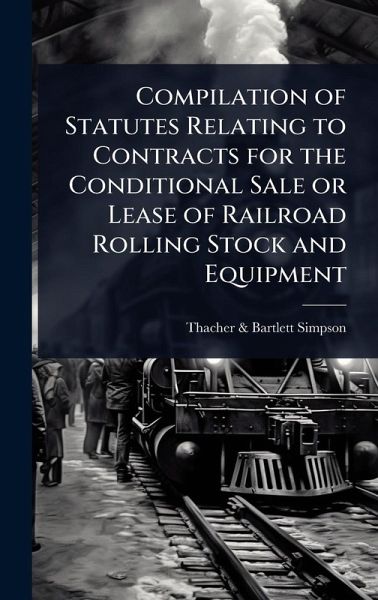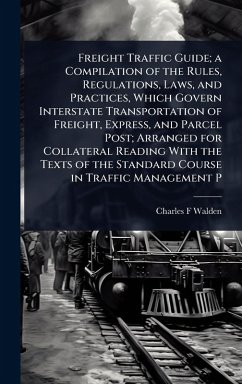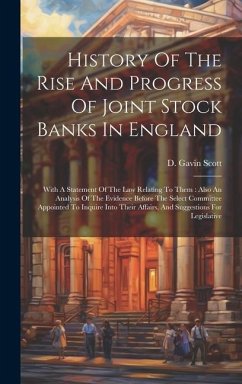
Compilation of Statutes Relating to Contracts for the Conditional Sale or Lease of Railroad Rolling Stock and Equipment
Versandkostenfrei!
Versandfertig in über 4 Wochen
29,99 €
inkl. MwSt.
Weitere Ausgaben:

PAYBACK Punkte
15 °P sammeln!
This compilation of statutes, prepared for the American Locomotive Company in 1912, provides a detailed overview of the laws relating to contracts for the conditional sale or lease of railroad rolling stock and equipment. Authored by Thacher & Bartlett Simpson, this volume offers valuable insights into the legal framework governing these transactions during the early 20th century. Focusing on the intricacies of contract law as it applies to the railroad industry, the compilation serves as a reference for legal professionals, historians, and anyone interested in the development of transportatio...
This compilation of statutes, prepared for the American Locomotive Company in 1912, provides a detailed overview of the laws relating to contracts for the conditional sale or lease of railroad rolling stock and equipment. Authored by Thacher & Bartlett Simpson, this volume offers valuable insights into the legal framework governing these transactions during the early 20th century. Focusing on the intricacies of contract law as it applies to the railroad industry, the compilation serves as a reference for legal professionals, historians, and anyone interested in the development of transportation law. The statutes included reflect the specific legal landscape of the time, offering a snapshot of the regulatory environment in which railroad companies operated. This book will be useful to those researching legal and business practices of the era. This work has been selected by scholars as being culturally important, and is part of the knowledge base of civilization as we know it. This work was reproduced from the original artifact, and remains as true to the original work as possible. Therefore, you will see the original copyright references, library stamps (as most of these works have been housed in our most important libraries around the world), and other notations in the work. This work is in the public domain in the United States of America, and possibly other nations. Within the United States, you may freely copy and distribute this work, as no entity (individual or corporate) has a copyright on the body of the work. As a reproduction of a historical artifact, this work may contain missing or blurred pages, poor pictures, errant marks, etc. Scholars believe, and we concur, that this work is important enough to be preserved, reproduced, and made generally available to the public. We appreciate your support of the preservation process, and thank you for being an important part of keeping this knowledge alive and relevant.







![The Letters of Nehemiah [Pseud.] Relating to the Laws Affecting Joint Stock Banks, and the Effects Likely to Be Produced, by the Measures of Sir Rober Cover The Letters of Nehemiah [Pseud.] Relating to the Laws Affecting Joint Stock Banks, and the Effects Likely to Be Produced, by the Measures of Sir Rober](https://bilder.buecher.de/produkte/68/68813/68813483n.jpg)




